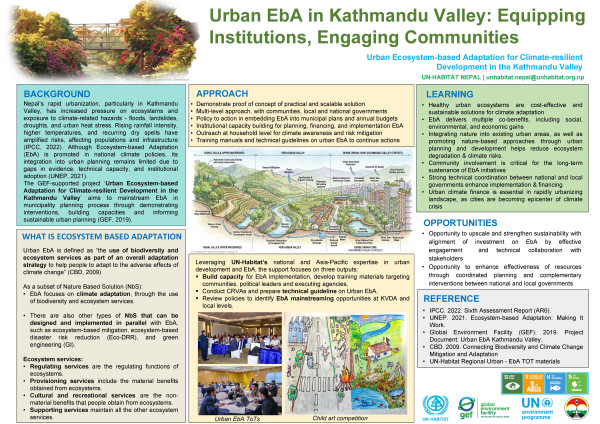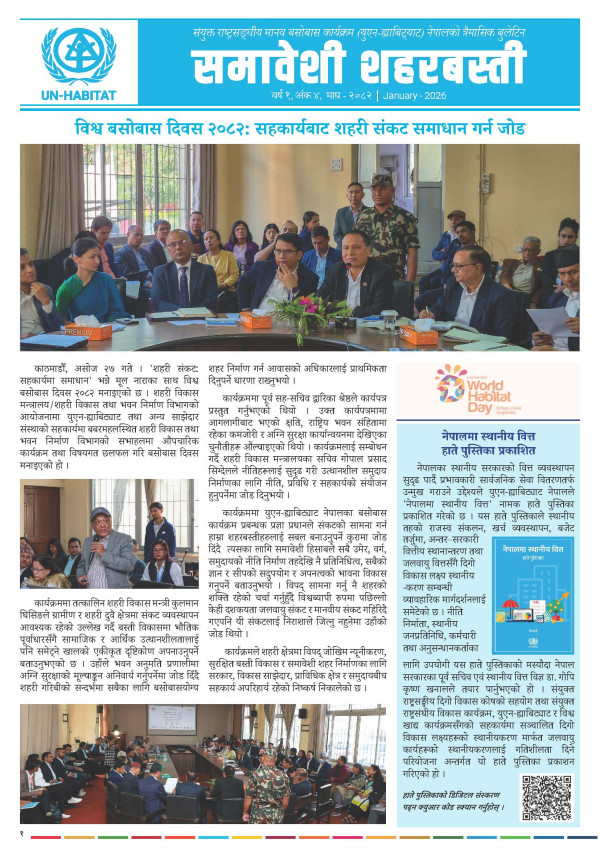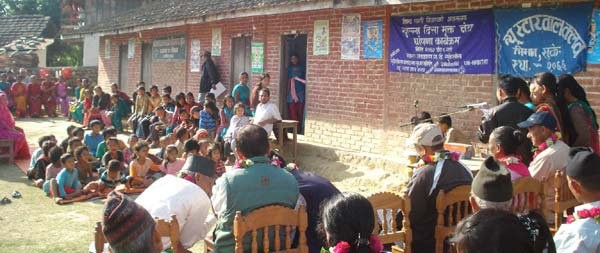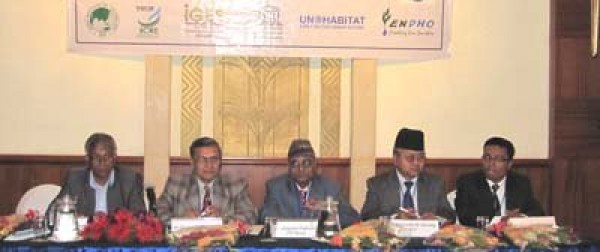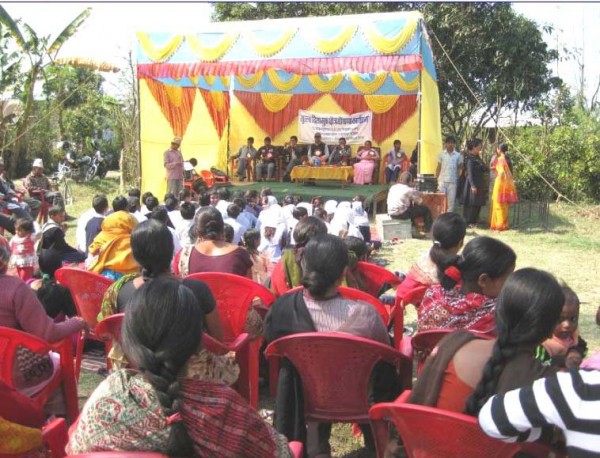UN HABITAT launched projects in Nepal for conservation and management of water sources
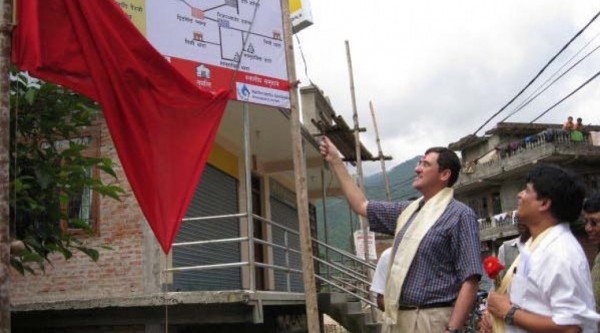
Scarcity of drinking water is not new for denizens of Kathmandu Valley. Water supplied by Kathmandu Upatyaka Khanepani Limited (KUKL) is far behind the demand of the people. Therefore, people use water from local sources such as stone spouts, dug-wells and springs to fulfill their demand. However, these sources are also drying gradually with the depletion in ground aquifer. Ground aquifer is the major source for these local water sources, and the main causing of declining ground water level is it's over extraction. Considering it, UN HABITAT Water for Asian Cities Programme Nepal launched two projects in the valley in August 2009 to manage drinking water at local level and recharge ground water. The launching programme of these projects were inaugurated by Andre Dzikus, Chief of Water and Sanitaiton Section II, Water, Sanitation and Infrastructure Branch, UN HABITAT, Nairobi UN HABITAT made an understanding with LUMANTI Support Group for Shelter to provide its technical as well as financial support to establish isolated water supply system and pro-poor distribution mechanism to provide safe and affordable drinking water to the poor and marginalized inhabitants of selected communities. This project was initiated officially by organizing a launching programme on 15 August, 2009 in Tokha. The project as its first component will tap water from streams located in Shivapuri National Park, which will be then treated and distributed in Saraswoti and Chandeshwori VDC of Tokha through the distribution network. As the surface water available is not sufficient to meet the demand, the project will also extract water from ground aquifer. In addition to water supply facilities, it will develop a comprehensive sanitation master plan of Tokha through consultations and consensus of all stakeholders to guide the future sanitation improvement plan in integrated manner. District Development Committee- Kathmandu, Saraswoti and Chandeshwori VDC has also made their solidarity by allocating budget for the establishment of water supply system in Tokha, and the project will get other necessary technical supports from Kathmandu Upatyaka Khanepani Limited (KUKL). The project has also targeted to access safe drinking water to about 1200 households of low income communities in Koteshwor. A distribution centre will be established, which will deliver the filtered drinking water in 20 litre polythene container in these communities. A water bottling system had been established in Chyasal, Lalitpur with technical and financial support of UN HABITAT, which is currently serving treated water to 250 households. This new project will install additional treatment plant to the existing water bottling system to cater safe drinking water to addtional 100 households in the area. Similarly, UN HABITAT and Bottlers Nepal Limited in collaboration with Lalitpur Sub-metropolitan City, Bentleys University, National Trust for Nature Conservation and in technical support of Centre for Integrated Urban Development launched another project on 16 August, 2009 in Lalitpur to demonstrate community rainwater recharge technique through restoration of traditional pond, installation of rainwater harvesting and groundwater recharge structure to facilitate increase in water discharge of selected traditional stone spouts. It has been expected to conserve 40,000 kilo liters of rain water, besides benefiting the local community and opinion leaders to build awareness on water conservation and protection of traditional water bodies.




